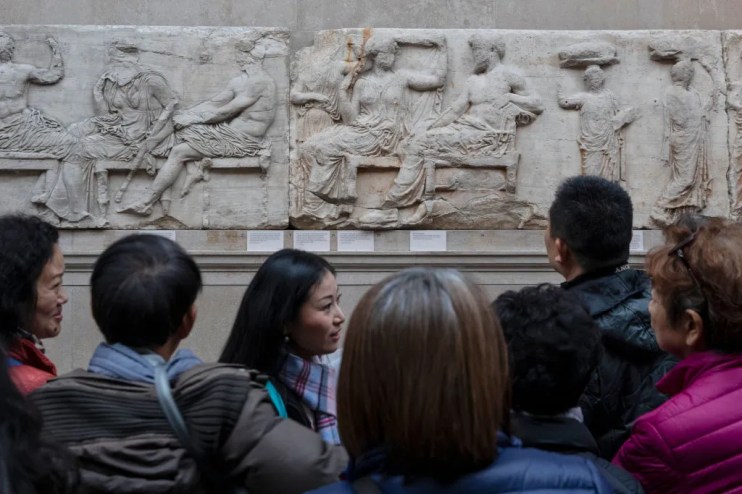Elgin Marbles: Leading historian says British Museum has “nothing to apologise for”

A leading Oxford academic has slammed mooted plans to lend the Elgin Marbles to Greece ahead of a crunch meeting of the trustees of the British Museum this week.
In a new report commissioned by Policy Exchange, art historian and Elgin Marbles expert Sir Noel Malcolm has confirmed the Museum is legally bound to preserve and maintain the sculptures, as its trustees are bound by the British Museum Act of 1963. He describes the items as “the Crown Jewels of the British Museum” and “nothing to apologise for”.
Given the Greek government’s explicit objection to British ownership, Sir Noel also warns against any loaning of the items as the risk of no return would be too great. Polls suggest the public agree: only 11 per cent find it likely the sculptures would be returned at the end of any loan period.
The Chair of the British Museum All-Party Parliamentary Group, Tim Loughton MP, has backed Sir Noel’s findings of “fact and good sense”.
He also warned of museums being spoiled and emptied following “recent siren calls by celebrity backed campaigns funded by millionaire plastic magnates to give the Marbles to Greece”.
Former Chancellor George Osborne, chairman of The British Museum, wrote earlier this month in The Spectator that the museum’s trustees are “exploring with the Greeks whether there’s a way to solve this 200-year-old dispute so that the sculptures can be seen both in London and Athens.”
A litany of political and cultural figures have since been making the same case, and the return of the Benin Bronzes to Nigeria by London’s Horniman Museum has shone further light on the issue of artistic repatriation.
Rishi Sunak last week said there was “no chance” of a law change to facilitate the loan.
The Elgin Marbles were collected by Elgin’s workmen from the Acropolis of Athens and imported to London in the early 19th century. Thomas Bruce, seventh Earl of Elgin (1766-1841), formerly British Ambassador to the Ottoman Sultan, forged an agreement with the Ottoman government and courts to enter the Acropolis, conduct architectural study, and remove non-foundational sculptures.
The expedition required significant investment from Elgin, and upon his return he sold the Marbles to the British government at a cut price to pay off the mountain of debt he had accumulated. The sale occurred “on the Condition that the whole of the said Collection should be kept together in the British Museum, and open to inspection, and called by the Name of The Elgin Marbles.”
Given the agreement Elgin made with Ottoman officials, Sir Noel claims contemporary allegations of pillaging, stealing, and plunder misinterpret the Marbles’ origins. Only in January, the Greek Ministry of Culture stated it “does not recognise the British Museum’s jurisdiction, possession and ownership of the Sculptures, as they are the product of theft.”
Both Greek and Ottoman forces shelled the Acropolis with artillery and mortars. Sections of the Parthenon building have also been removed over the last two decades due to the damaging effects of the Athenian climate, namely acid rain.